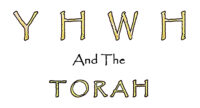The Prayer Of Melech Menasheh-Tefillat Menasheh
The Prayers of Menasheh is a short work of 15 verses recording a penitential tefillah attributed to Melech Menasheh of Yahudah. It was found in Hebrew among the Dead Sea Scrolls. Menasheh is recorded in the Scriptures as one of the most idolatrous melechim of Yahudah (2 Kings 21:1–18; 2 Chronicles 33:1–9). The Second Book of Chronicles, records that Menasheh was taken captive by the Assyrians (2 Chronicles 33:11–13). While a prisoner, Menasheh prayed for rachamim and upon being freed and restored to the kesay turned from his idolatrous ways (2 Chronicles 33:15–17). A reference to the tefillah, but not the tefillah itself, is made in 2 Chronicles 33:19, which says that the tefillah is written in “the annals of the melechim of Yisrael.” The tefillah was placed at the end of 2 Chronicles in the late 4th-century Vulgate. It was part of the 1537 Matthew Bible and the 1599 Geneva Bible. It also appears in the Apocrypha of the Melech James Bible and of the original 1609/1610 Douai Rheims Bible. Menasheh was the 13th Melech of Yahudah (692-638 B.C.E. son and successor to Melech Hezekiah (2 Kings 20:21). The historian of 2 Kings tells us much about the evil of his reign (21:2-10) and the punishment foretold by the neviim (verses 10- 15), but practically nothing about the rest of the doings of Menasheh. He brought back the abominations of Melech Achaz; imported the adoration of “all the hosts of the shamayim”, seemingly the astral, solar and lunar myths of Assyria; introduced and “made his son pass through fire” in the worship of Moloch.
It was probably in this frenzy of his varied forms of idolatry that Menasheh shed also very much innocent blood, until he filled Yahrushalayim up to the mouth. The historian of II Paralipomenon tells much the same account and adds that, in punishment, 𐤉𐤄𐤅𐤄 brought the Assyrians upon Yahudah. They carried Menasheh to Bavel. 𐤉𐤄𐤅𐤄 heard his tefillah for forgiveness and deliverance and brought him again to Yahrushalayim, where Menasheh did his part in stemming the tide of idolatry that he had formerly forced upon Yahudah (2 Chronicles 33:11-20). At one time, doubt was cast on the historicity of this narrative of II Paralipomenon, because 2 Kings omits the captivity of Menasheh. Schrader gives cuneiform records of twenty two melechim that submitted to Assurhaddon during his expedition against Mitzrayim; second on the list is Mi-na-si-i sar ir Ya-u-di (Menasheh, prince of the city of Yahudah). Schrader also gives the list of twenty two melechim who are recorded on a cuneiform tablet as tributaries to Asurbanipal in the land of Hatti; second on this list is Mi-in-si-i sar mat Ya-u-di (Menasheh, prince of the land of Juda). Since a Bavelian brick confirms the record of the historian of II Paralipomenon, his reputation is made a little more secure in rationalistic circles.
1 𐤉𐤄𐤅𐤄 Almighty Ahlohim of our ahvot, Avraham, Yitzchak and Yaakov and of their zera tzadikim.
2 Who has made the shamayim and earth, with all the multitudes of it;
3 Who has bound the sea by the Word of Your mitzvah; who has shut up the deep and sealed it by Your awesome and great Name;
4 And all wonder and quake before Your Power.
5 And one cannot stand before Your majestic esteem or bear Your furious anger against the wicked.
6 Yet without measure or boundaries is the rachamim You have bestowed.
7 For You, 𐤉𐤄𐤅𐤄 El-Elyon, slow to anger and abounding in rachamim and forgiving the evils of men; You, 𐤉𐤄𐤅𐤄, in Your great kindness, have bestowed forgiveness to sinners dwelling in transgressions and in Your great rachamim have placed a derech of teshuvah for the wicked so that they may be saved.
8 You, 𐤉𐤄𐤅𐤄 Ahlohim of the tzadikim, did not grant forgiveness to the tzadikim, to Avraham, to Yitzchak and to Yaakov, as they had not sinned against You willfully; but for me, I, am a sinner and yet You have granted me forgiveness, for I have sinned.
9 My iniquities are beyond number and I should not see, or raise my eyes, or look towards on high, for the greatness of my transgressions; and now, 𐤉𐤄𐤅𐤄, rightfully have You afflicted me and have repaid me according to my hands’ work, with captivity.
10 I am bent down with iron bands, I cannot even raise my head from my nephesh’s sins, as I moved against Your Ruach and was evil in Your eyes. I did not do Your will and did not guard Your mitzvoth and I set up disgusting idols and I increased abominations.
11 And now I bend the knee of my lev, for I desire Your kindness.
12 I have sinned, 𐤉𐤄𐤅𐤄, I have sinned and of my transgressions I am well aware.
13 And so I will plead to you, 𐤉𐤄𐤅𐤄, forgive, please, forgive me and do not let me die in sin and do not guard and record iniquities le-olam-va-ed and do not cast me away from You and place me in the depths of Sheol, for You are 𐤉𐤄𐤅𐤄, Ahlohim of the repentant are You.
14 Show me please, Your kindness, even to me and save me in Your great rachamim, though I am not worthy to see it.
15 And I shall hallel You always, all the yamim of my chayim, for to You all the hosts of the shamayim hallel You and to You, 𐤉𐤄𐤅𐤄, is the esteem, le-olam-va-ed. Ahmein.
